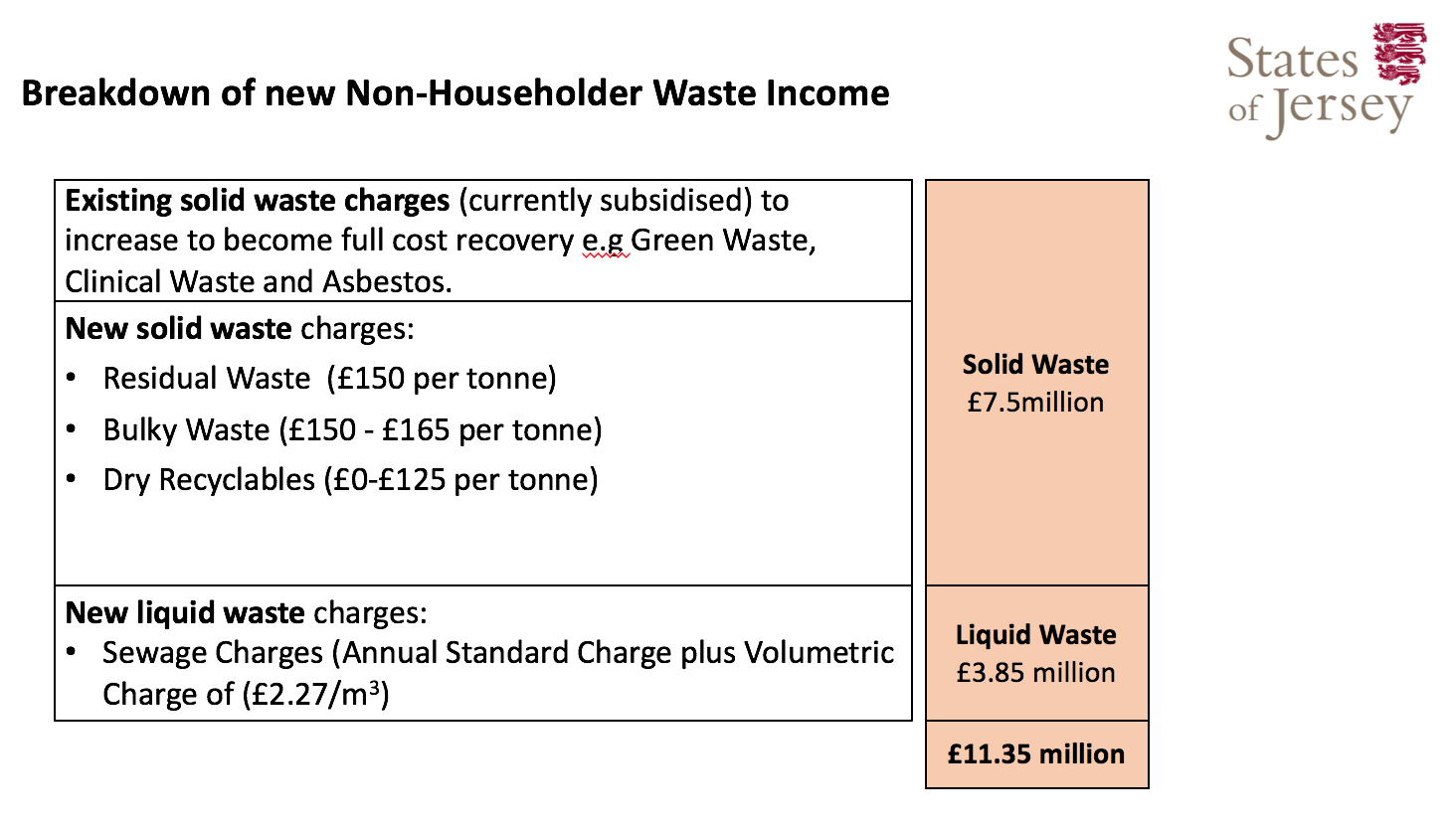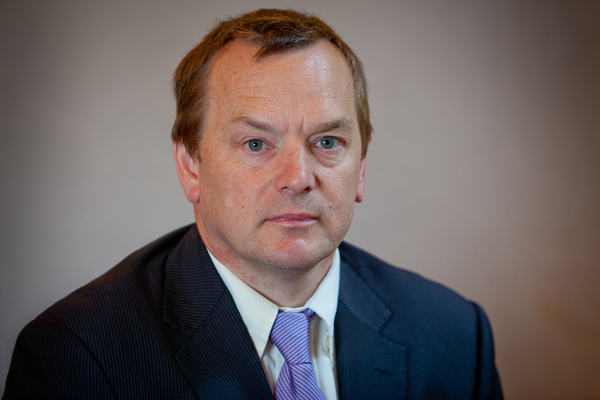
The Infrastructure Minister says he will be pushing ahead with controversial waste charges after staunchly defending the plans in a Scrutiny Panel hearing yesterday.
“There is no ‘if’ about bringing in waste charges. It’s a States’ decision,” said Deputy Eddie Noel in a meeting between with the Environment, Housing and Infrastructure Scrutiny Panel.
Although the States approved the idea of introducing waste disposal charges for 'non-households' - so covering businesses, charities and sports clubs - under the Medium Term Financial Plan (MTFP) in September 2016, since details of the plans have emerged from the Department for Infrastructure (DfI), they have received intense criticism.
In a tense meeting yesterday, Deputy Noel explained the reasoning behind the charges as being two-fold:
He said it is, “...primarily about changing behaviour, secondly, it’s about fairness.”
It is the hope of DfI that by introducing charges for disposing of the liquid waste they will encourage environmentally friendly policies to reduce water usage and waste.
“We actually do want businesses to use less water,” said Deputy Noel.
Secondly, Deputy Noel said the charges were “about fairness” and users paying for the services they use so the cost of disposing of their waste would no longer fall on the general taxpayer.

Pictured: A breakdown of the controversial charges. (Source: States of Jersey)
However, Deputy Montfort Tadier challenged the motive behind the introduction of waste disposal charges for non-householder waste and asked if, instead, the reason for the charges was to make up the department's budget shortfall following cuts in the MTFP.
DfI had their budget cut by £18.85 million recently, and it is estimated that charging for the disposal of liquid waste would raise £3.85million.
Deputy Noel admitted, “My department's budget has been reduced,” adding that the money raised by the waste disposal charges would help contribute to making up the shortfall in the budget. Nonetheless, he insisted that, “...my department will be in no better a position” following the charges' introduction.
However, this resulted in confusion as to whether it is “primarily” environmental reasons driving the introduction of charges, or whether it is simply a hidden 'tax' in order to raise revenue.
Despite questions arising over the motives behind the introduction of charges, the date they will be brought in will be debated by the States next month.

Pictured: Minister for Infrastructure Deputy Eddie Noel declined to consider a formal consultation process over the proposed charges.
Businesses have criticised the plans, especially in the hospitality industry. The Jersey Hospitality Association have previously voiced concern, stating that the extra charges will make it hard for them to remain competitive in the tourism market and that, “...Jersey would struggle to compete.”
However, Deputy Noel challenged their views, brought to the panel by Deputy Tadier, saying that hospitality businesses faced, “...similar charges, at higher levels, in other jurisdictions” and still managed to stay competitive.
He insisted that his Department had engaged with local businesses throughout the process of developing the plans and said they would continue to meet with concerned businesses to try and help them minimise their charges through waste reduction.
When asked by Deputy Tadier if they would consider a formal consultation process, Deputy Noel shot the idea down, stating: “No, there isn’t anything to consult about."
Instead, he insisted that they would push ahead with bringing the proposal to the States. “We've done what the States have asked us to do," he said.
Comments
Comments on this story express the views of the commentator only, not Bailiwick Publishing. We are unable to guarantee the accuracy of any of those comments.